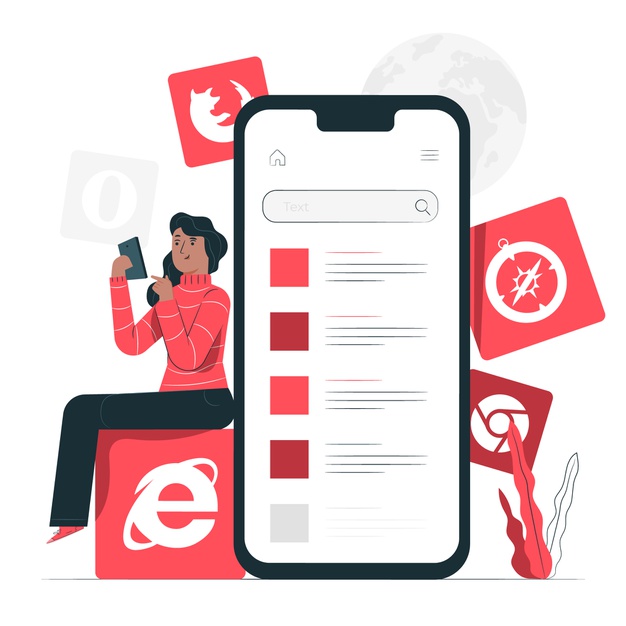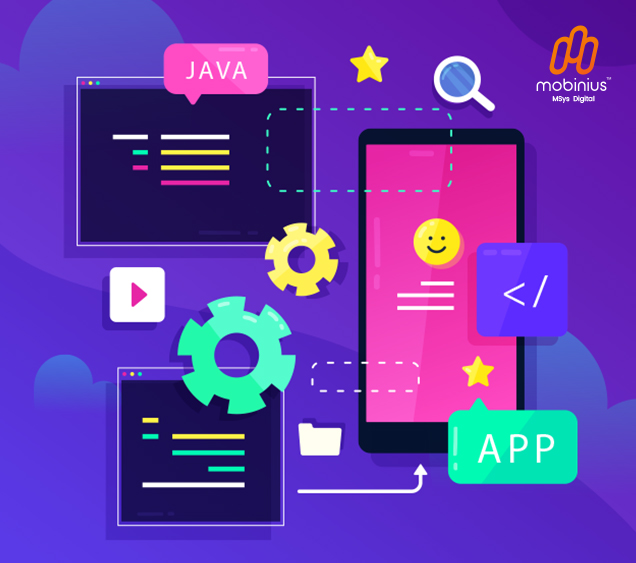Best Cross Platform Mobile App Development Frameworks in 2021
Audio : Listen to This Blog.
Today, we can not even think of our life without any mobile apps. We spend a lot of hours on these applications and online services, and the usage is being increased every passing day. So it is imperative to take help from a cross-platform app development company to connect your business to the virtual world. You have to target both Android and iOS users to create more engaging applications.
Table of Contents
About Cross-Platform
You must select the right framework. Moreover, the right platform and methodology for the overall development of your business. Cross-platform app development frameworks are such advanced technologies that the applications made with it are able to work with different operating systems, across different devices. In this process, a single code base is used to develop mobile apps for different mobile platforms. The apps made with this approach are very cost-effective and can access a wide range of hardware or software. You can find out several types of cross-platform frameworks in the market. The only thing left is to choose the right Cross-platform mobile app developers. This will help you to develop amazing applications.
Top cross-platform app development frameworks in 2020
Among several types of cross-platform frameworks here, we are discussing the most popular and helpful frameworks that are trending in 2020. We have mentioned the features, pros, and cons of each framework along with app examples so that you can select the best one for mobile app development.
1. Flutter
Flutter is a framework recently launched by Google that is being updated consistently. This framework is developed in a convenient way that it is very comfortable to use. It actually works on Dart languages. With this advanced methodology, you can develop interactive native apps by using a single code-base. Flutter app developers give a tough fight to React Native with their high-quality performances.
Pros
- It allows the developers to find out the changes made in code immediately.
- Flutter app development company helps in quick app development in a cost-effective way.
- The framework is compatible with working with different operating systems.
- Due to the dart language, it can be implemented easily.
- This is a receptive framework with a positive background.
Cons
- Do not support Android TV or Apple TV.
- Applications are quite larger in size.
Flutter Examples:
Xianyu, Google Green Tea, Google Ads, etc. are some popular apps created with Flutter.
2. React Native
This platform was launched in 2015 by Facebook. Now it has become very popular to create captive solutions. The application designed with React Native development company has high performance. This framework allows the developers to create UI-rich applications.

Pros
- React Native framework offers a maximum of 80% sharing of the code-base in different platforms.
- Because it is ready to implement components, it allows the developers to check the results instantly.
- It can create many powerful apps with a native-like user interface.
Read More : “React Native vs Flutter Framework“
Cons
- Not appropriate for starters.
- This framework is not developed with Android and iOS support, so it requires a new codebase to access native components.
React Native Examples:
Tesla, Instagram, Pinterest are the popular apps created with the React Native framework.
3. Ionic
Ionic is a hybrid mobile app development framework that is compatible with the standard version of Android ( above 4.1) and iOS (above 7). Being an open-source Cross-platform framework, Ionic app development company can serve customers across the world. Ionic is designed with Angular and Apache Cordova that helps to create Cross-platform applications. It not only provides amazing UI features but also decreases the workload of Ionic app developers.
Pros
- It is compatible to work with web technologies so that you do not need to hire any professional mobile app developers. The way it develops apps is very cost-effective and takes the minimum time.
- Because of web technologies, this framework is easy to implement.
- It includes a liver-load system enabling you to review the app on your devices.
Cons
- It comes with some limitations in the free version, which is not user-friendly at all.
- According to performance, it stays a little behind since it doesn’t work well with the applications that need quality graphics.
Ionic Examples:
IBM, SAP, NASA, ING are renowned apps developed with Ionic.
4. PhoneGap
PhoneGap is a popular framework that is supported by Adobe. Initially, it was known as Apache Cordova. Advanced technologies, including HTML5, CSS, and JavaScript, are used in this framework. It uses cloud-based solutions as well as interactive web technologies. Therefore developers can use it very easily. It is also compatible with features like GPS, camera, Phonebook, etc.
Pros
- It offers developers to share their applications in the development stages so that they can get feedback from their teammates.
- It allows access to third-party tools, multiple plugins, and great community supports for a better framework.
- It is an enterprise-level platform that has integrated market supports.
Cons
- It has non-descriptive documentation.
- It does not support high-performance and intensive app development, such as gaming apps.
Phone Gap Examples:
Wikipedia, FanReact, TripCase, etc. are some notable apps created with PhoneGap.
Bottom line
There are also other popular cross-platform frameworks like Sencha, Xamarin, etc. You need to find out the best framework according to your requirements. The applications developed by this framework are actually useful to reduce the workload of your business. You can take help from any professional software agency that will guide you to choose the best.
FAQ's
If you want to connect your business to the virtual world, you must take the help of Cross-Platform. It provides a uniform look for different devices along with code re-usability. It is also very cost-effective and develops apps very quickly.
Before choosing any Cross-Platform framework to consider some essential factors like the size of the company, their expertise, and the solutions you required. Deem about these points to choose the best Cross-Platform framework.
There are several cross-platform frameworks available in the market, including Flutter, Ionic, Reactive Native, PhoneGap, Sencha, etc. They all have their own terms of work.



